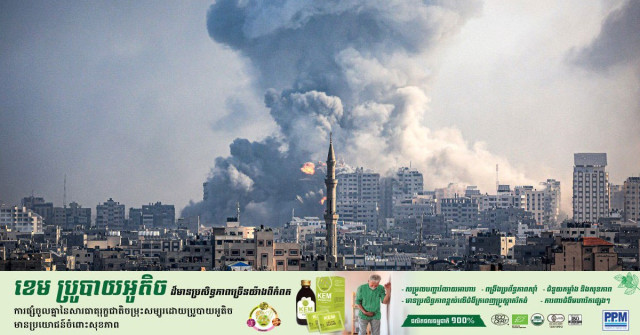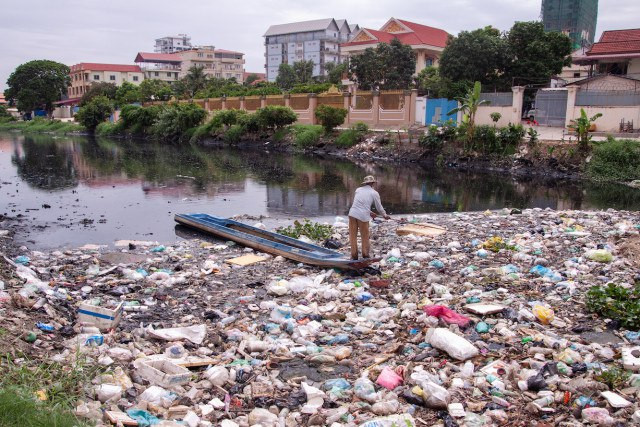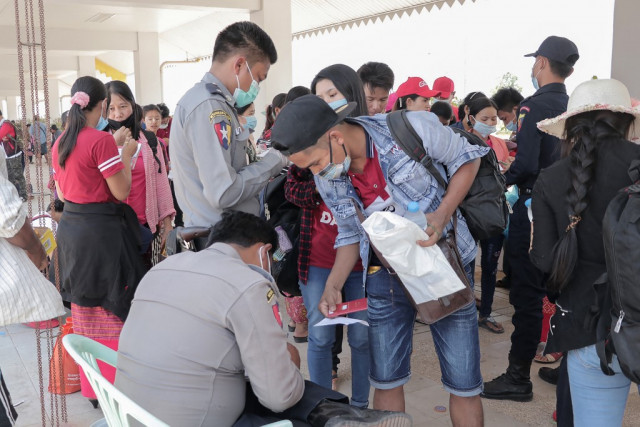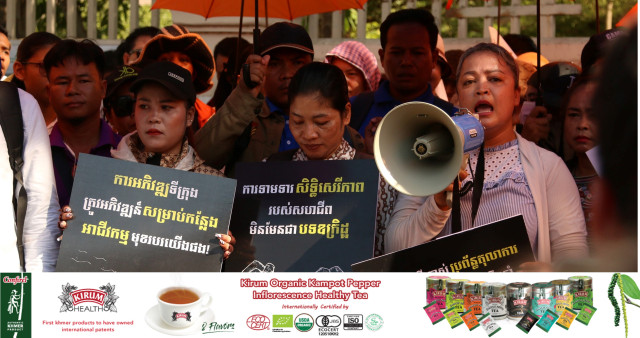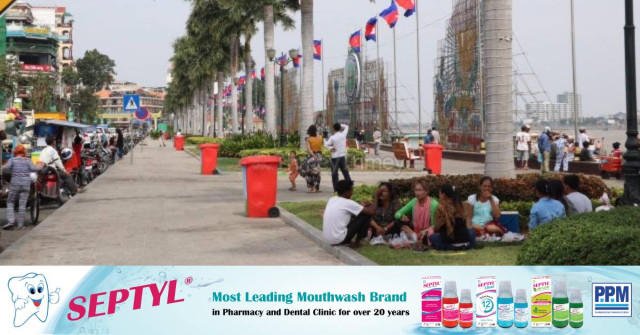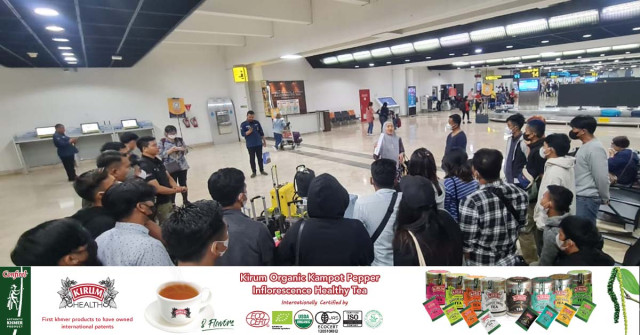PM Wants to Formalize the Economy
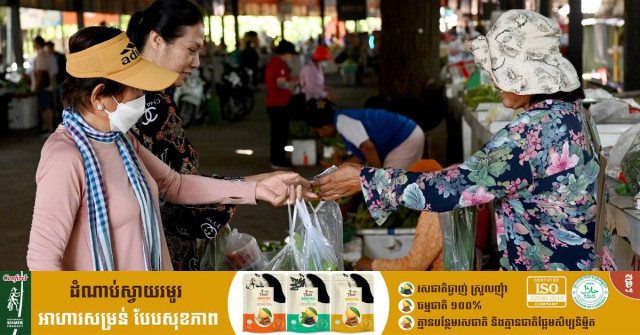
- By Teng Yalirozy
- October 10, 2023 5:10 PM
PHNOM PENH – Prime Minister Hun Manet urged informal workers to register with the administration so that they can be part of the formal economy and benefit from social protection.
“Whether you are in the informal or formal economy, we will help all Cambodian citizens,” Hun Manet said during the launch of the National Strategy on Informal Economic Development 2023-2028 on Oct. 10.
This national strategy aims to promote, support, and enhance the growth of businesses, occupations, and jobs in the informal economy.
It has defined three different economic categories to better map Cambodia’s economic landscape: The Informal Zone, for people not registered with the country’s administration, the Informal Economic Development Zone, for people in transition towards the formal economy, and the Formal Zone, that includes people and businesses duly registered with the General Department of Tax and the Ministry of Commerce.
Hun Manet said that the strategy would focus on three main points: Reducing poverty and social inequality, strengthening social and economic resilience and promoting economic growth.
“The theory on paper is good, but what is important to me is what can be applied on the ground,” he said. “The plan is not perfect, but it is practical.”
The government wants to be able to quickly implement emergency measures to support the workers in the informal sector in case of economic crises. Hun Manet said he wants to base these measures on previous experiences, citing the COVID-19 crisis where the government granted some financial compensation to workers in the garment sector to partly compensate for their loss of income due to the economic slowdown.
The informal economy in Cambodia accounts for 40 percent of the country's Gross Domestic Product (GDP) and 85 percent of its workforce, encompassing agriculture, small trading, construction, and domestic work, the Finance and Economy Ministry said in February.
The ILO's 2023 “Women and Men in the Informal Economy” report reveals that, in low and lower-middle-income countries, up to 60 percent of the men and 55 percent of the women were part of the informal economy.
According to ILO data reported by the online platform Statista, informal employment in Cambodia is between 75-89 percent.
Minister of Industry, Science, Technology, and Innovation Hem Vanndy said the inclusion of informal workers into the formal economy will benefit all sectors, including wholesale, retail and repair enterprises, accommodation and food services, handicrafts and farming communities, construction workers, waitresses, massage therapists, salons, hairdressers, motorcycle rivers, tuktuk and rickshaw drivers, truck drivers, taxis, market vendors, artists, athletes, journalists, street vendors, wedding services and agricultural workers.
Three Zones to Become One Zone
With this new policy, Hun Manet said his goal was to gradually reduce the three zones – from informal to formal economy – to one.
He said the policy is to encourage informal workers to register with the relevant ministry without being forced.
While small and medium enterprises are to be registered with the Commerce Ministry, micro-enterprises have to be listed under the Department of Labor and Vocational Training. Self-employed workers are required to register with the National Social Security Fund or with the One Window Service Office (OWSO).
“We want more people to participate in this transition to make it easier for the government to collect data for policy management to help you on time, especially in difficult times,” said Hun Manet.
Hun Manet said that by doing so, the government will be able to help the needs on time and promote the national economy, which is in line with the Win-Win Policy.
Vorn Pao, the president of the Independent Democratic Association of the Informal Economy (IDEA), welcomed the strategy, encouraging informal workers to have their names registered to enjoy the benefits of social protection.
However, Pao urged the government to widely disseminate the registration information, particularly the benefits that they would get to avoid future consequences.
“This strategy, if effectively implemented according to what is stated in the paper, will surely improve [informal workers’] livelihood,” he said, adding that he hoped to see all informal workers get equal benefits.
Micro and medium-sized enterprises who volunteer to register will benefit from the exemption of any fine, tax liabilities, and various tax incentives, as well as access to financial support, assistance and training related to enterprise management.
Self-employed individuals such as vendors, tuktuk and rickshaw drivers, street food sellers, etc., will receive free health care, scholarships for their children, monthly allowance as well as employment opportunities.
Previously, informal workers were required to apply for a business license and renew their business at the One Window Service Office (OWSO), the unit at the sub-national administration that provides services across the country.
The move was flooded with criticism until Hun Manet ordered on Sept. 13 that informal workers no longer had to apply for licenses.






